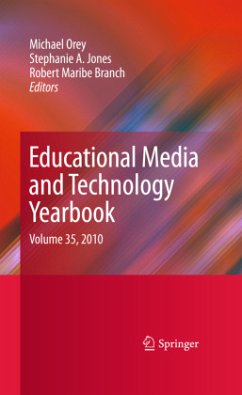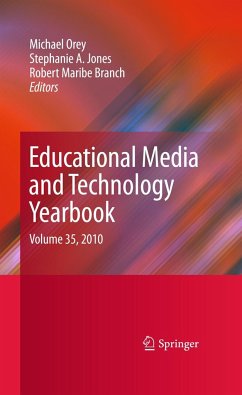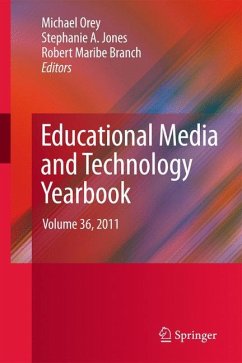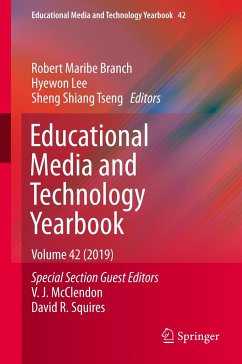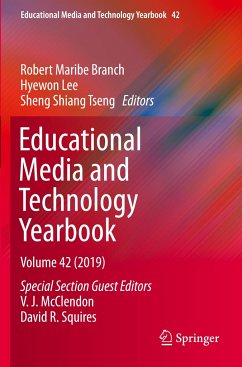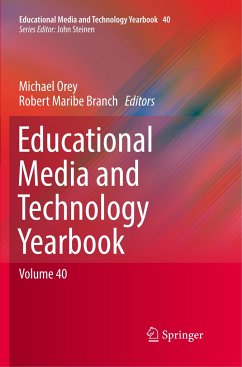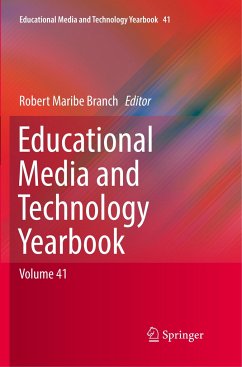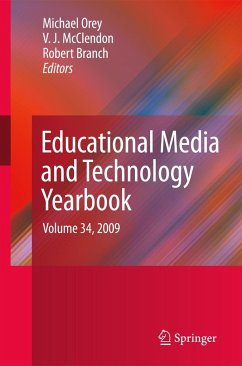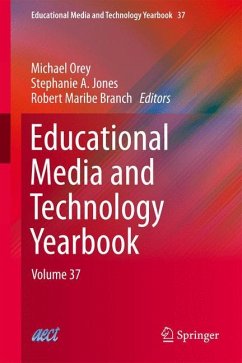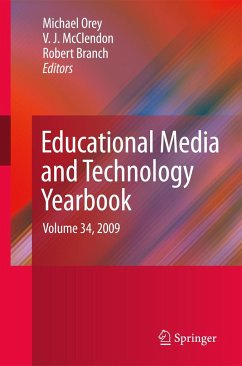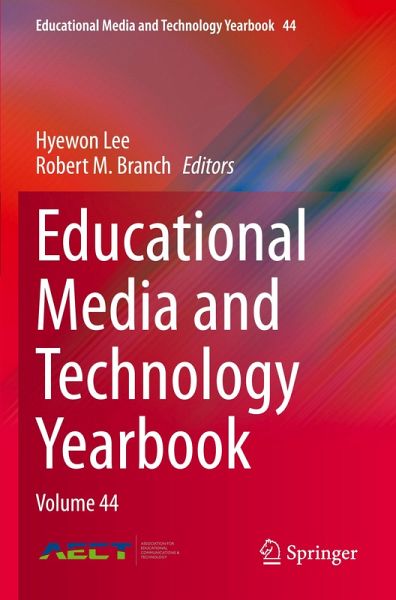
Educational Media and Technology Yearbook
Volume 44
Herausgegeben: Lee, Hyewon; Branch, Robert M.
Versandkostenfrei!
Versandfertig in 6-10 Tagen
106,99 €
inkl. MwSt.

PAYBACK Punkte
53 °P sammeln!
This is Volume 44 of the Educational Media and Technology Yearbook. For the past 40 years, our Yearbook has contributed to the field of Educational Technology in presenting contemporary topics, ideas, and developments regarding diverse technology tools for educational purposes. The Yearbook has inspired researchers, practitioners, and teachers to consider how to develop technological designs, curricula, and instruction, integrate technology to enhance student learning, teach diverse populations across levels with effective technological integration, and apply technology in interactive ways to ...
This is Volume 44 of the Educational Media and Technology Yearbook. For the past 40 years, our Yearbook has contributed to the field of Educational Technology in presenting contemporary topics, ideas, and developments regarding diverse technology tools for educational purposes. The Yearbook has inspired researchers, practitioners, and teachers to consider how to develop technological designs, curricula, and instruction, integrate technology to enhance student learning, teach diverse populations across levels with effective technological integration, and apply technology in interactive ways to motivate students to engage in course content.
The audience for the Yearbook typically consists of media and technology professionals in K-12 schools, higher education, and business contexts. The Yearbook editors have dedicated themselves to providing a record of contemporary trends related to educational communications and technology. The Yearbook also strives to highlight special movements that have clearly influenced the educational technology field. This volume continues the tradition of offering topics of interest to professionals practicing in other areas of educational media and technology.
The Yearbook has become a standard reference in many libraries and professional collections. It provides a valuable historical record of current ideas and developments in the field. Part One of this updated volume, "Trends and Issues in Learning, Design and Technology," presents an array of chapters that develop some of the current themes listed above, in addition to others. In Part Two, "Leadership Profiles," authors provide biographical sketches of the careers of instructional technology leaders. Part Three, "Graduate Programs in Learning, Design, and Technology," and Part Four, "Organizations and Associations in North America," are, respectively, directories of instructional technology-related organizations and institutions of higher learning offering degrees in related fields. Part Five, the "Mediagraphy," presents an annotated listing of selected current publications related to the field.
The audience for the Yearbook typically consists of media and technology professionals in K-12 schools, higher education, and business contexts. The Yearbook editors have dedicated themselves to providing a record of contemporary trends related to educational communications and technology. The Yearbook also strives to highlight special movements that have clearly influenced the educational technology field. This volume continues the tradition of offering topics of interest to professionals practicing in other areas of educational media and technology.
The Yearbook has become a standard reference in many libraries and professional collections. It provides a valuable historical record of current ideas and developments in the field. Part One of this updated volume, "Trends and Issues in Learning, Design and Technology," presents an array of chapters that develop some of the current themes listed above, in addition to others. In Part Two, "Leadership Profiles," authors provide biographical sketches of the careers of instructional technology leaders. Part Three, "Graduate Programs in Learning, Design, and Technology," and Part Four, "Organizations and Associations in North America," are, respectively, directories of instructional technology-related organizations and institutions of higher learning offering degrees in related fields. Part Five, the "Mediagraphy," presents an annotated listing of selected current publications related to the field.



